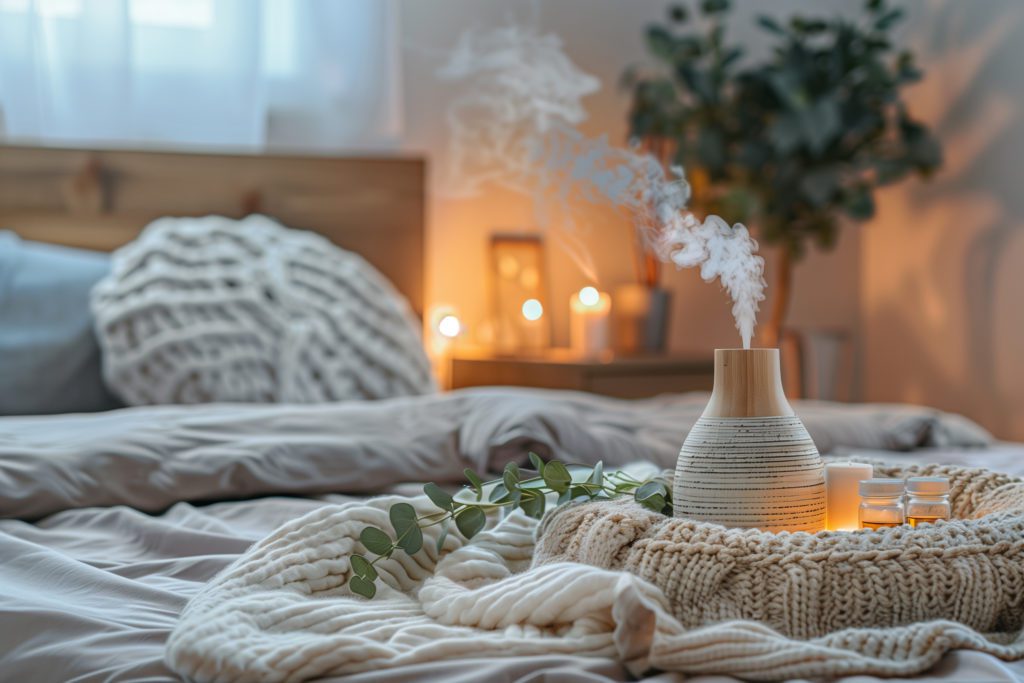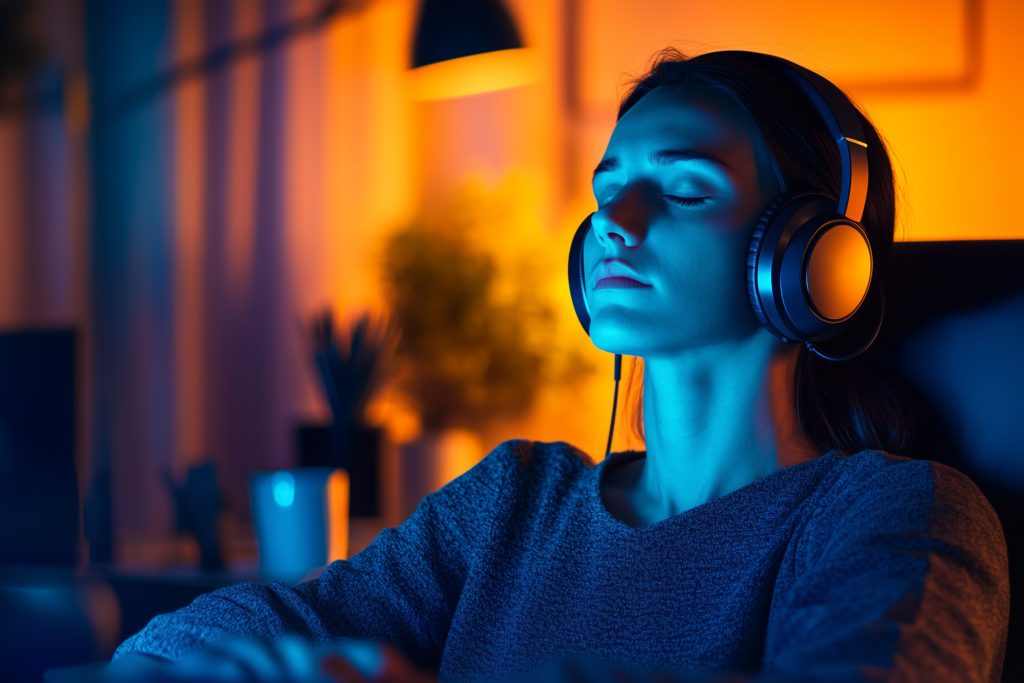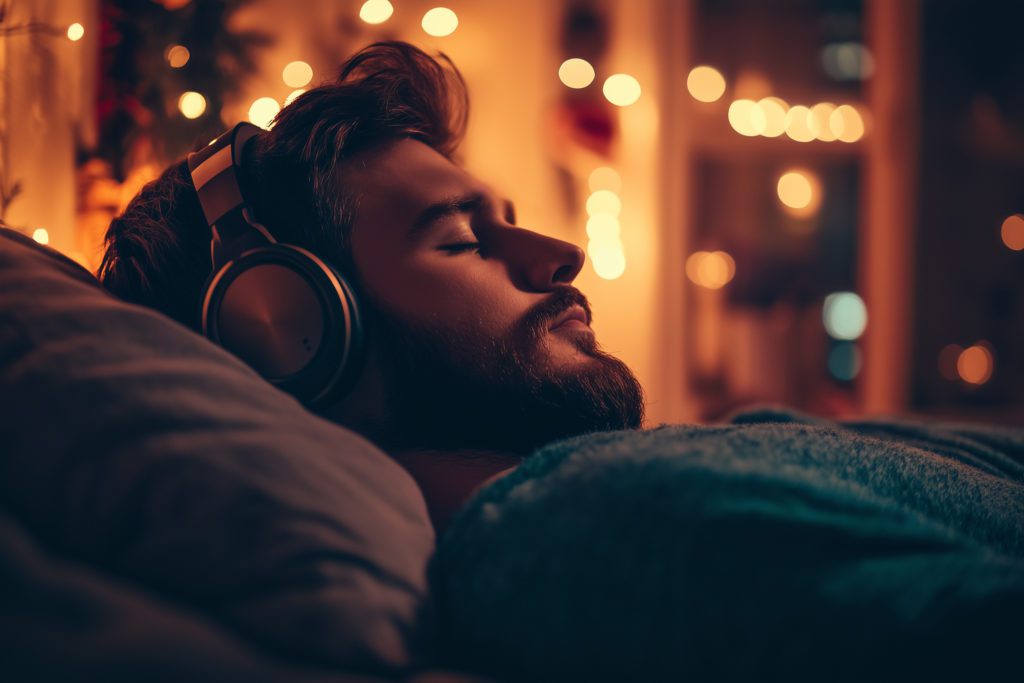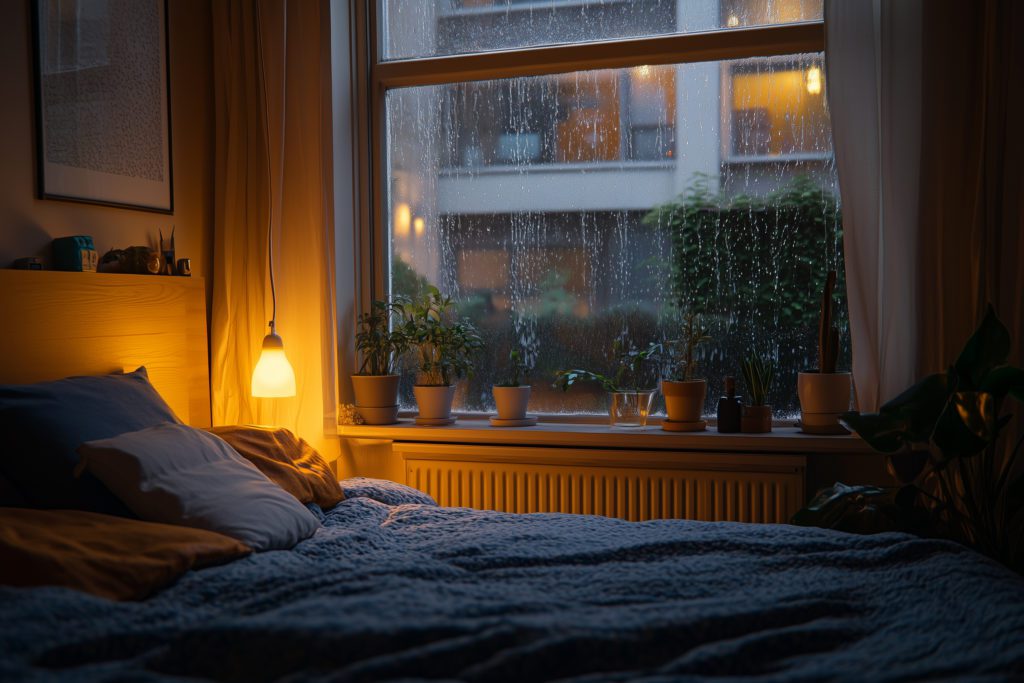
Creating the Perfect ASMR Sleep Routine
ASMR is a reaction to an auditory, physical, or visual stimulus that triggers feelings of relaxation. Explore tips for adding ASMR to your sleep routine.

Do you find yourself experiencing tingling across your scalp and neck when you hear certain sounds, such as shushing, tapping, whispering, or light scratching? Do you love it when someone plays with your hair because of the immediate relaxation it promotes?
If you answered yes to either question, you may experience autonomous sensory meridian response (ASMR), which is a state of deep relaxation that follows a “tingly” response to certain stimuli. It’s a state that only 28-38% of people can attain, but if you do, you may be able to use ASMR as a part of your bedtime routine to sleep better.
How Does ASMR Help With Sleep?
ASMR causes a static-like feeling to spread throughout the body, often starting at the scalp and then spreading down the spine. For those who experience it, it is highly pleasurable and usually brings along intense relaxation and euphoria.
Brain imaging of those experiencing ASMR has revealed that it causes certain areas of the brain to appear stimulated, including those involved in our reward system, social behavior cues, and feelings of empathy.
The way that ASMR alters our state of mind makes it a common application before bed. Some ways in which it can improve your sleep include:
Reduces Anxiety And Stress
Anxiety and stress can keep your mind running even when you want to shut it off and go to sleep. The increased cortisol levels that these two states bring along can also keep your heart and breathing rates elevated, which can make sleep hard to come by and may make you more likely to wake during the night. However, ASMR has been shown to reduce anxiety and stress levels. Furthermore, with something to focus on, ASMR keeps anxious thoughts from sullying your mind as you try to sleep.
Promotes Relaxation
Relaxation is key for falling asleep, and it is also the hallmark sensation reportedly achieved by those who experience ASMR. When relaxed, your muscles can release any tension they are holding onto, allowing your body to slip into unconsciousness. Additionally, relaxation comes with a settled state of mind, which further sets you up for sleep.
Improves Your Mood
There’s a strong connection between depression and sleep problems, with around three-quarters of those with depression having symptoms of insomnia. However, studies on ASMR show that it can elevate someone’s mood, which may then alleviate any sleep problems they experience as a result of depression.
Reduces Pain
While not a temporary solution, ASMR has been shown to temporarily reduce chronic pain. With pain a common interferer for good sleep, ASMR thus offers a way to reduce your pain long enough to drift off.
Types of ASMR Triggers
You may associate ASMR just with auditory triggers, but ASMR extends beyond that into the other senses, and you may find that you prefer one over another. In fact, you may think that you can’t experience ASMR until you find the right trigger for you.
Some triggers have been shown to induce ASMR more than other triggers. For example, one study found that physical touch had a higher likelihood of inducing ASMR than visual or auditory triggers and that the sensations seen with physical touch were more likely to be high-intensity.
Sound-Based Triggers
Sound-based ASMR is the one most popular across social media, meaning there are a lot of options to explore.
Sounds most often associated with ASMR include:
- Soft voices
- Whispering
- Sweeping or brushing noises
- Crunching
- Clicking
- Crinkling
- Liquid pouring
Nature soundscapes can also trigger ASMR, but those generated by human activity are more likely to trigger ASMR.
Physical Triggers
Physical triggers are often the most successful at triggering ASMR, so see if a friend, partner, or family member can help by stroking your hair, gently touching your face, or giving you a massage.
While physical touch is the most successful ASMR trigger, it is also the only one that cannot be completed on your own, so it may be harder to use this trigger, especially if you live by yourself.
Visual Triggers
Your sense of sight can also intake information triggering ASMR. Specifically, watching someone else receive caring touches, watching a video where the subject completes gentle hand movements, or watching someone complete an artistic task requiring great concentration can all help you enter this coveted state of relaxation.
Tips For Adding ASMR To Your Sleep Routine
With the ability of ASMR to promote relaxation and reduce stress, anxiety, depression, and pain, it’s no wonder why it’s a helpful addition to a sleep routine.
If you’re interested in adding ASMR into your bedtime routine so that you can sleep better, follow these tips:
- Experiment and find your triggers. ASMR triggers differ by person, so it’s best to try a variety and see which you respond the best to. Try out visual, auditory, and physical triggers, along with all the varieties within each category, and see which ones promote relaxation and feelings of sleepiness.
- Opt for screen-free ASMR. While there is plenty of ASMR available on social media, screens aren’t the best right before bed as the light they produce can suppress melatonin production, making it hard for you to feel sleepy. Instead, opt for screen-free ASMR, such as having someone rub your back, or listening to auditory ASMR, such as that available with Pillow. If you respond best to visual ASMR, watch the videos at least an hour before bed to give your body time to build up melatonin.
- Combine ASMR with deep breathing and mindfulness. ASMR is even more effective when you combine it with other relaxing activities, such as deep breathing or mindfulness meditation.
- Keep a regular routine. When it comes to good sleep, a regular bedtime routine is crucial to prepare your body for bed and wind down from the activity of the day. If you decide to try ASMR, you’ll see the greatest response if you are consistent with it and regular with the times that you do it.
If you struggle to fall asleep at night, ASMR may be the boost you need to drift off to sleep. With its ability to relax your mind, ease depression, and lower pain, you’ll be feeling relaxed and ready for bed in no time.

Written by
Jessica G
Medical writer freelancer who has written hundreds of articles on varying topics. Masters of Engineering degree in Biomedical Engineering.
Download Pillow
Get help
Press & News
Legal
Connect
X (Twitter)
Company
Copyright © Neybox Digital Ltd.



